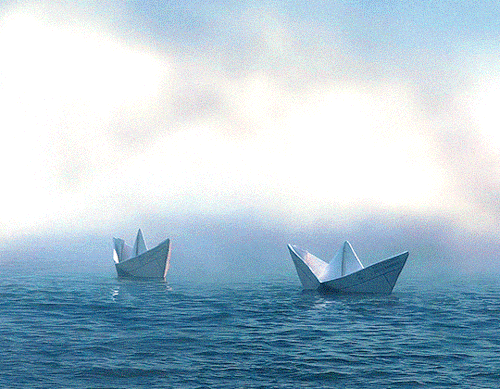
ENG / GER 📝✒️| DIGITAL ARTIST | WRITER & TEACHER | TV SHOW FANATIC | GAMES | GAME DEV ENTHUSIAST | HOMEPAGE Letterboxd_ Instagram_ Twitter_
247 posts
TV Show - The Fall Of The House Of Usher
TV Show - The Fall of the House of Usher
After an entertaining and very well-made first season of Only Murders in the Building, I felt the need to dive into something different. I remembered that I had once started The Fall of the House of Usher but turned it off right after the opening scene in the church. However, during a little book shopping tour, I saw a beautiful edition of The Fall of the House of Usher (which I ended up not buying), and it made me think I should give the show another chance.

Although Edgar Allan Poe's short stories serve as the inspiration, you quickly realize the allegorical nature of the characters. Yes, they are exaggerated and often over-the-top, but it also becomes clear that there are real-life counterparts. I won’t go into detail about whom those real-life figures might be—you’ll have to figure that out for yourself.
As a heads-up, comparing the characters to real people while watching the show can be quite entertaining!
This doesn’t only apply to the characters, though. Themes like ultra-wealthy family dynasties, abuse of power, and the corrupt practices of the pharmaceutical industry are also explored.
You quickly learn that the show revolves around the Usher family, though it takes a while for the details to unfold. What is revealed in the opening minutes is that it’s about the legacy of the two Usher siblings and why all of Roderick Usher’s children are dead. Along with that, we meet the prosecutor, Auguste Dupin, and with that, we have the main group around which the story centers—so it seems.
The first episode sets an intriguing framework and shows us right away that standard storytelling methods are only partially in use here. The conversation between Roderick Usher and Auguste Dupin serves as the base, and from there, many threads branch out across different time periods. Rarely is any timeline told all the way through; instead, there are constant additions. You can sense this storytelling style right from the first episode, and it skillfully weaves in a tension-filled narrative arc.
Fortunately, as I already peeked ahead a little, this applies to the storytelling around the children's deadly circumstances as well. "First episode for introduction, then one episode per child, and the last episode as the big finale." But that’s not how things will unfold here—you notice that right at the beginning of the first episode. Throughout, this unique storytelling style becomes more evident. The narrative constantly shifts back to Roderick and Auguste, to the past, or to scenes involving one of the other children. It doesn’t focus too heavily on just one scenario. This can be challenging for the viewer, but also refreshing.
Another point that stands out immediately is the style and visual presentation of the series. Sometimes it’s obvious, and sometimes it’s not, but CGI is often used as a tool to enhance scenes. As grand and inflated as some characters may seem, their surroundings reflect this as well. A strong contrast here is the location of the conversation between Roderick and Auguste, which takes place in the now decaying and dilapidated Usher family home.
I’m really looking forward to what’s to come, even though I already know a lot due to my overly eager research after the first episode. But that doesn’t bother me at all, as the visuals, as mentioned before, are captivating, and I’m excited to see what other challenges the show has in store for me.
-
 biihsansa liked this · 5 months ago
biihsansa liked this · 5 months ago -
 dreamer-329 liked this · 6 months ago
dreamer-329 liked this · 6 months ago
More Posts from Mrbensonmum




Sweater town

TV Shows - 3 Body Problem IX
Episode seven, and we can already see the finish line, yet the pace picks up once more.

The cryogenic facility is an interesting detail, as it's introduced mainly in the context of being used for the probe. However, it's so large that a full human can’t be sent, only something much smaller, like a brain. By this point, we understand that it will be Will.
But there’s another detail that may have been overlooked in the conversation between Wade and Jin. Wade plans to use the cryogenic facility for himself—he wants to freeze his body and be woken up every few years to continue overseeing the facility and essentially the survival of humanity.
This establishes a kind of time machine, because that's exactly how the cryogenic facility and the concept of "going into cold sleep" is handled. It’s an interesting aspect, since cold sleep is often just treated as freezing and that's it. But if you take a step back from the narrative and view it from a broader, chronological context, it can actually be seen as a form of time travel. The book presents and even calls it that way several times. I’d be thrilled if this idea is introduced in season two, as it’s crucial for Jin and Saul’s future development!
Will is now preparing for his self-induced suicide, and the dialogue between him and Saul is brilliantly written. Even Auggie’s farewell is well done—without getting too sentimental, they simply show the bottle, which works so well. And Saul and Will—Saul not wanting to let Will go until the very end—is handled in a way that feels refreshing, unlike what is typical in other shows. While Saul sheds tears, it’s not overly emotional, and I think that makes it even more powerful and impactful.
This is reinforced when Jin misses the chance to say goodbye after learning that the star belongs to Will. She arrives too late and can only watch as the cryotank, containing Will’s brain, is sealed.
We also briefly revisit Ye Wenjie after Tatiana, who wasn’t forgotten by the San-Ti, is sent to kill her. But before this happens, we see Ye Wenjie meeting with Saul and telling him a strange joke:
"So Einstein dies. He finds himself in heaven, and he has his violin. He’s thrilled. He loves his violin more than physics. Even more than women. He’s excited to see how well he can play in heaven. He thinks he’ll be amazing. So he starts tuning up, and the angels rush over.
'What are you doing?' they ask.
'I’m getting ready to play.'
'Don’t do that. God won’t like it. He’s a saxophonist.'
So Einstein stops. He doesn’t play. But it’s hard for him. He loves music. And there’s actually not much to do in heaven. Sure enough, from high above, he hears a saxophone playing. It’s playing 'Take the A Train,' do you know that one? Einstein knows it too. He thinks, I’m going to do it. I’m going to play along. We’ll sound amazing together. So he starts playing 'Take the A Train.' The saxophone stops, and God appears. He walks over to Einstein and kicks him in the groin, which hurts, even in heaven. Then he smashes Einstein’s beloved violin to bits. Eternity without music. Heaven becomes hell for Einstein. And as he’s lying on the ground in pain, an angel comes over and says: 'We warned you: Never play with God.'"
I find this line "Never play with God" very interesting, as it leaves a lot of room for interpretation. Is Ye Wenjie implying that the San-Ti, with their methods and the Sophons, are like gods and therefore should not be challenged? Or is it more about how humanity shouldn’t develop too far? Like the joke suggests, one shouldn’t try to play at God's level, or believe they can match him. When I watched this scene for the first time, I found it a fascinating detail, and I watched it several times in a row because of how Ye Wenjie delivered the joke—it was so gripping.
We have one more episode, and the final episode always reminds me a bit of the third season of Dark. Why that is, I’ll explain in the last post!
TV Shows - 3 Body Problem VIII
Episode six is a key episode when you think about everything that’s still to come.

What keeps coming to my mind while watching this episode is the question of how we, as humans in the real world, would react. A negative reaction is briefly shown at the end of episode five, and then we only see it one more time when Will, Saul, and Auggie try to buy alcohol. I thought it was really fitting because people start panic buying, even though the San-Ti won’t arrive for another 400 years. I find that realistic, because after such news, we might see a similar reaction here. But would it also work on the scientific side? Despite the difficulties and the fact that no real progress seems possible, would some people still not give up and try to keep advancing humanity?
I believe the author of the books really did his homework here, as with many other topics and areas, and thoroughly researched what might happen. There’s a part, which should be covered in the second season, where humanity goes through a major collapse, wiping out a large portion of the population before any real development takes place. No matter how it’s portrayed in the series, I recommend looking at the book because the future described there is really well done, with many innovations that make sense when you look at today’s developments.
Operation Staircase basically starts here, and I find it fascinating how its development is shown. You have all these scientists who live in their own world and don’t look beyond their own fields. Thomas Wade knows exactly who he needs to listen to and how to motivate them to get a decent result. Jin, on the other hand, thinks outside the box and isn’t discouraged by certain limitations. She works with the resources she has and builds on them, instead of just hoping that the right technology will be developed in a few decades, as suggested.
But Operation Staircase also lays the foundation for another event that fully unfolds in the third book. Spoiler warning! When we lose Will Downing, he is miraculously found by the San-Ti and turned back into a human. In the distant future, Jin and Will meet again, talk, and Will tells her three fairy tales he came up with. These three tales lead humans to develop a kind of faster-than-light drive, but it seems they stop before finishing it.
I’m particularly excited about these three fairy tales because I really enjoyed them in the book, and, as I’ve mentioned many times, I’m very curious to see how they will be portrayed in the series. Especially since they play a crucial role in a later catastrophic event.
The purchase of the star might seem a bit over the top, but it’s also an important event. Later, Jin and her friend will travel to that star to meet Will there. However, Jin won’t find Will, and everything that happens in between and afterward really blew me away. This will likely be one of the most challenging parts to adapt. There are so many events that need to be “checked off” before everything in the last third of the third book can make sense. And will Saul really become the Archivist?
My mind is racing because I’m being flooded with memories from the books, which are mixing with the visuals from the series. I recently read an article that said the creators are already working hard on seasons two and three. They now have a good idea of the cast’s abilities and can better judge who is capable of what. But the next two seasons will be so different that it might feel like they’re almost casting new actors and creating a new show, even though it’s the same cast.
Here’s the article
This makes me feel very hopeful because the books are very different from each other, and if they’ve already understood this for the planning of the next seasons, they’ve already overcome a big hurdle.
I just remembered another difference that was portrayed much more emotionally in the series than in the book. This is because, in the series, we have this small group that doesn’t exist in the book in the same way, and there’s a strong friendship bond. We see a tearful farewell between Saul and Will, and Jin, who arrives too late to say goodbye after she finds out that the star is from Will. I have to admit, I got a bit emotional here, too—it was pretty intense. Especially since I think she already noticed that there was something between them, even before Will told her that he loves her. (And here I’m getting a bit ahead of myself because that happens in the next episode! But what does time even mean?)
The next two episodes tighten everything up, and as mentioned before, we also get to see the Wallfacers, although the information is a bit sparse, which I think I’ve mentioned before. Maybe I’ll talk more about that later.



